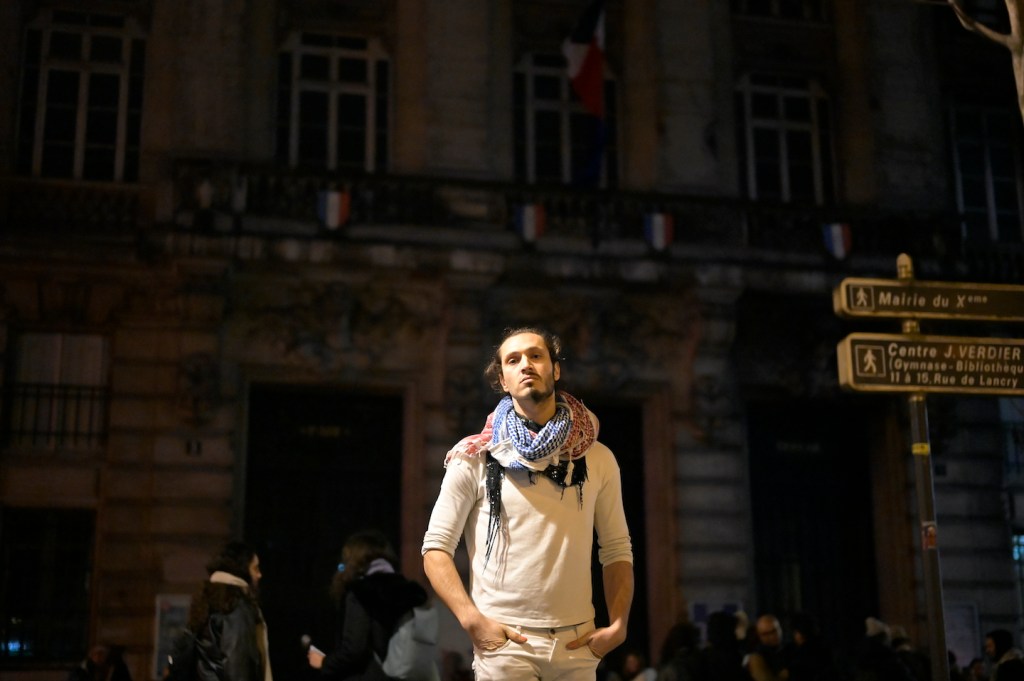Fewer than three months ago, the Birmingham Civil Rights Institute rescinded a human rights award honoring activist Angela Davis. The decision—which was never explicitly stated—was reportedly linked to Davis’ politics as an outspoken supporter of Palestine and of divestment in Israeli companies in support of Palestinian rights. In a statement, the Institute, located in her hometown, said, “[Davis] unfortunately does not meet all of the criteria on which the award is based.”
Davis, who has been widely considered a global justice leader, militant Communist, civil rights warrior, and feminist icon since the late 1960s, didn’t address the Institute’s decision (which was later reversed to reinstate the award) at her recent appearance at the Apollo Theater. She focused instead on her unwavering support for marginalized communities.
“To integrate Black people, or Latinx people, or Indigenous people, or Asian-American people into a society that remains the same [won’t work]. And, obviously, recognizing how Islamophobia has transformed racism as it’s experienced by all racialized groups is so important,” Davis said to the audience, saying she believes homogenizing approaches to activism have failed Muslims on the basis of race and religion.
According to FBI data, 18.6 percent of anti-religion hate crimes in 2017 were inflicted upon Muslim people, and the overall number of hate crimes against Muslims has gone up exponentially since September 11. Just days before Davis’ talk, 49 people were killed in two New Zealand mosques by a white supremacist fueled by anti-Muslim rhetoric.
Videos by VICE
“The violent domestic racism that has been produced by Islamophobia means that we all have to stand up passionately against Islamophobia,” Davis said on Sunday.
For the WOW Festival event, the 75-year-old, who was once affiliated with the Black Panther Party and, under the orders of President Ronald Reagan, was fired from her teaching job at UCLA in 1969 because of her involvement with Communist Party U.S.A., did not shy away from how racism and classicism have affected the perception of who was at the forefront of radical progressive change in this country. Davis contends that Black women, like singers Billie Holliday, Bessie Smith, Ma Rainey and educators Ida B. Wells and Mary Church Terrell, should be recognized as the rightful forebears of the modern intersectional feminist movement.
“Before the emergence of the Civil Rights Movement, musicians were traveling throughout the South, oftentimes in interracial groups, and they were challenging the laws of segregation,” Davis said of Holliday and other Black women of blues music in that era.
“They created community as they performed,” Davis said. “There had been this absolute silence around domestic violence against women. In blues performances, not only do we see acknowledgement of what is going on, but the performances themselves created a way to make community so that other Black women would recognize they were not alone.”
“When we speak of feminism in this country, there almost always is the tendency to assume that this is something that was created by white women,” Davis said. “Women like Ida B. Wells, women like Mary Church Terrell, women like Anna Julia Cooper, are responsible for the feminist approach today that we generally call intersectionality.”
In light of the current socio-political state of the country, Davis put a challenge on the table for people who identify as feminists. Davis (who spent 17 months in prison awaiting her 1970 murder trial after purchasing guns used to kill four people in the Soledad killings,) believes that feminists need to think like abolitionists and fight for the deconstruction of institutions that have historically been violent to oppressed people.
For More Stories Like This, Sign Up for Our Newsletter
“What I want to argue is for a feminist perspective that understands that we cannot simply reform institutions like prison and the police, because they are so embedded with racism and violence that, if we’re ever going to extricate ourselves from that, we have to abolish prisons,” she said. “We have to abolish prisons as the dominant form of punishment and imagine different forms of security. And abolish the violence of the police apparatus as the primary mode of security today.”
Davis believes that surface-level forms of feminism that only advocate for privileged women are not going to make way for universal freedom.
“I’m not talking about bourgeois feminism. I’m not talking about glass-ceiling feminism. I’m not talking about simply supporting women who are already at the top,” she said. “I’m talking about those at the bottom. So, anti-racist and anti-capitalist feminism that is related to the development of local solidarities helps us to recognize that this enormous problem that we have had for a long time with mass incarceration, the prison industrial complex, and all injustices.”




